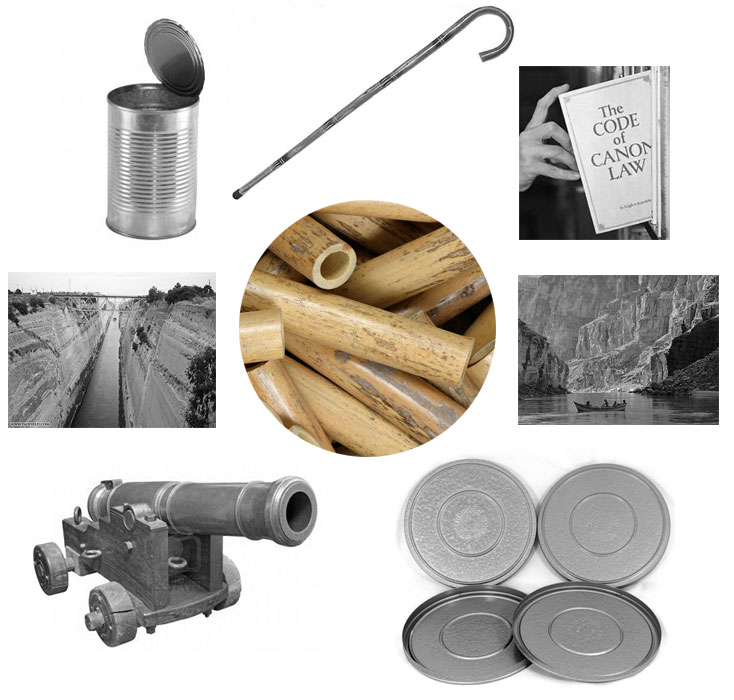Recently, I was thinking about the precise meaning of “canister.”
I knew it was a cylindrical tube that was used as a container, but that was about it.
The Oxford English Dictionary defines it as:
A vessel for holding liquids, now spec. one of metal, and usu. cylindrical with a handle over the top. Also (chiefly N. Amer.), any large cylindrical metal container, a bin.
Good enough. But then I wondered if “canister” derived from “can” (seemed obvious) and if other similar words did, as well: “cannon”, “cannibal”, “canyon” &c. Were they all related?
Turns out that they are! Well, except for “cannibal” which derives from the Spanish Canibales, Christopher Columbus’ misspelling of Caribes, a people of the West Indies.
Anyway, the progenitor of the above words is the Greek word kanna, meaning “cane” or “reed.” Thence came the Latin “cannus”, leading to “cannistrum” (a wicker basket), and eventually to “can”.

The words “cannon” (named for its tube-like shape) and “canal” (a pipe or tube for conveying fluid — think ear canal) derive from kanna. Of course, both meanings of cane — the reed plant and the walking stick — derive from kanna. Even “canon” (as in rules, standards) derives from the Greek kanon, meaning “any straight rod or bar; rule; standard of excellence.”
“Canyon” — a long, narrow, steep valley, cut in rock by a river — derives from kanne via the Spanish cañón (a pipe, tube; deep hollow, gorge), as well.
So over the centuries, the meaning of kanne has broadened from a cane-like tube to any narrow conduit for liquid, spawning a panoply of words all derived from that root.
NOTE: Thanks to the Online Etymological Dictionary!

Speak Your Mind